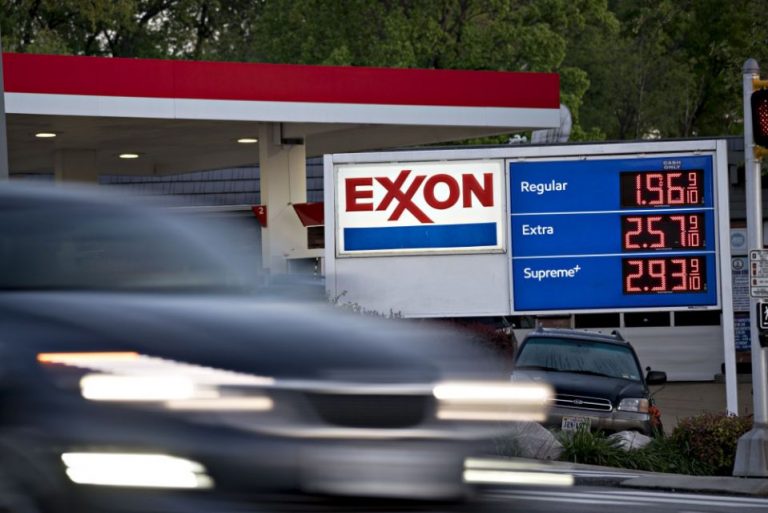Exxon Signals Historic Fourth Consecutive Loss on Demand Hit

(Bloomberg) — Exxon Mobil Corp., which is struggling to maintain a $15 billion-a-year dividend program, indicated it incurred a fourth straight quarterly loss.
Exxon confirmed in a filing Wednesday it will take a writedown of as much as $20 billion on its upstream assets, a possibility first disclosed at the end of October. It also reported much smaller non-cash impairments related to its refining business.
There were some positives. Higher oil and gas prices had an impact of up to $1 billion on upstream profits compared with the third quarter. The chemicals segment saw an earnings boost of as much as $400 million due to improved margins. Exxon’s shares were little changed in after-hours trading in New York.
Still, a fourth-quarter loss would confirm Exxon’s challenges in covering both dividends and capital expenditures from operational cash flow, and remains reliant on debt. The last time the Irving, Texas-based company generated enough free cash to cover its payout was the third quarter of 2018, according to data compiled by Bloomberg.
Exxon is set to disclose its full quarterly results on Feb. 2, amid one of the most-punishing periods in the company’s 150-year history. Its stock cratered to a 22-year low during 2020 amid a worldwide glut of oil and collapsing demand that gutted cash flow, spurring widespread job cuts. Exxon was kicked out of the Dow Jones Industrial Average, warned it will incur the biggest writedown of its modern history, and was assailed by activist investors seeking better returns and more climate accountability.
Exxon, which has long prided itself on its decades-long record of annual dividend increases, may have opened the door to changing course in late November, according to Cowen & Co. analyst Jason Gabelman. Whereas company executives touted Exxon’s “reliable and growing dividend” during an October conference call, a Nov. 30 statement announcing writedowns and spending cuts only mentioned its commitment to a “reliable” payout, Gabelman said in a note to clients.